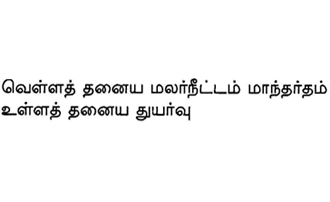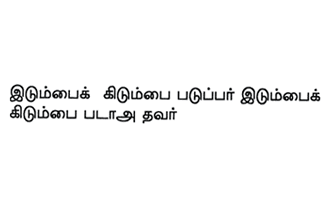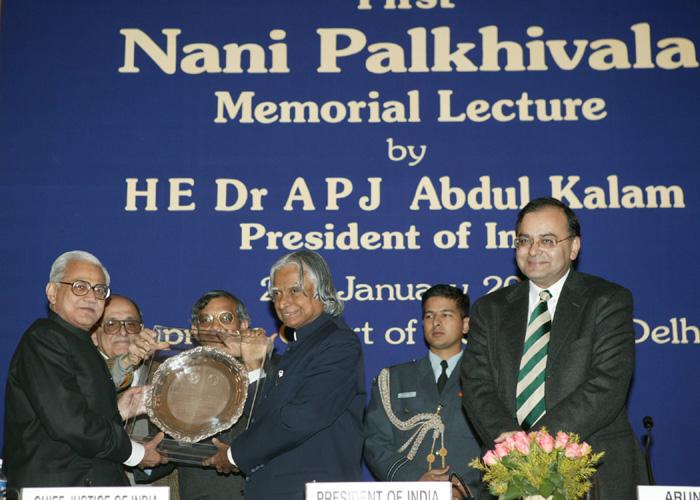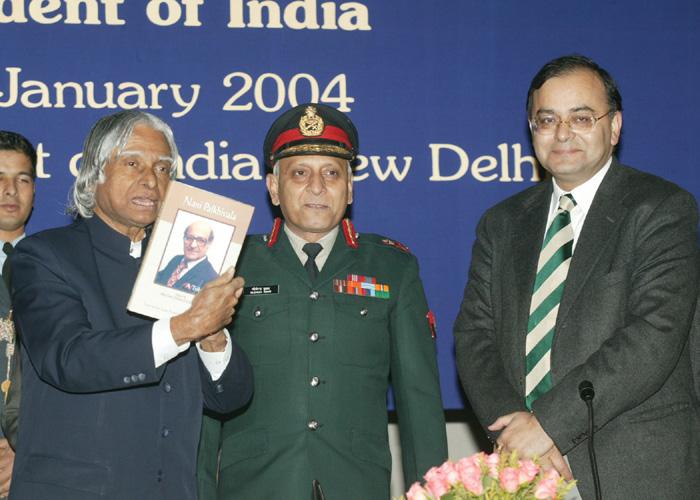First Nani Palkhivala Memorial Lecture
New Delhi : 21-01-2004
Evolution of Enlightened Citizen
I am delighted to participate in the First Nani Palkhivala Memorial Lecture being organized by the Bar Association of India and the Supreme Court Bar Association. My greetings to all the distinguished participants, members of the Judicial and Legal Community and organizers of this event.
Nani Palkhivala started his life as a middle class boy who suffered from stammering but his father, noticing his clear thinking and incredible debating power, repeatedly advised him to take to the legal profession. He aspired for the ICS but fate destined otherwise. What a great boon to the nation, to have had the spectacle of Palkhivala, in his lawyer's robes appearing before the Supreme Court and the judges of the Supreme Court stating, "Such arguments will not be heard in this Court for centuries." Some time back, I was reading about Nani Palkhivala's views on present state of affairs in the country. He felt that the values preserved for over 5000 years as foundation of Indian civilisational heritage, such as - politeness, good manners, respect for elders, hospitality, integrity and honesty, cleanliness etc. - are deteriorating steadily in preference to the modern life-style of our urban life modeled on western culture. Recently when I visited Hyderabad, one girl asked me a question - "Is it possible to live in a corruption free society?" Then she asked, "Mr. President how the developed India and a beautiful life is possible by 2020, if we continue to live in a corrupted environment?" This prompted me to select the topic for today's lecture as "Evolution of Enlightened citizen". Only three systems namely home and family, school, government and judiciary can evolve enlightened citizens.
Character Building: Home
Recently I was in Bangalore where I interacted with the students of the Indian Institute of Science. During my lecture, I said that if a country is to be corruption free and become a nation of beautiful minds, there are three key societal members who can make a difference. They are father, mother and the teacher. I would like to share with you the response I received from one of the staff members of IISc for these remarks. He had written, " The words that only three people Father, Mother and Elementary School Teacher can remove corruption, are extremely true". He further stated that he had taught his daughter that she should always speak the truth and that if she speaks the truth she will have no fear in life. Today she is 10 years old but when she was in her 2nd standard she had not gone for school for one day because he had taken her to a function at his friend's place. In her leave letter he had mentioned that due to unavoidable circumstances she couldn't attend school. She immediately remarked that, "Why I should say unavoidable circumstances and not that we had to attend a function. You have told me not to tell lies why should I tell lies". Then he realized his mistake and changed the leave letter. This is the power of teaching children at a young age to be honest, which also enables us to be corrected by the child if we deviate from our righteous path. Honesty comes out of righteousness. Once taught the children become conscious keepers. Once you start giving the right direction in the minds of the children, character building emanates from the family.
Education with Value system: School
The best part of a young person is his or her childhood in school and the best time spent is 0800 Hrs to 1600 Hrs in the school. The prime learning environment is 5th to 16th years of age. The student spends approximately 20,000 hours in the school campus. Of course, at home, love and affection are imparted but again most of the time of the day is spent in preparing school's homework and study, eat, play and sleep. Hence the school hours for children are the best time for learning and need best of environment, mission oriented learning with value system. I still hear the echo from Bestolozzy, a great teacher's saying, "give me a child for seven years. Afterwards, let the God or devil take the child. They cannot change the child." What a golden mission a school can have. All the more, the teacher is in the centre of the mission. The best of dynamic triangle is child, teacher and parents. For parents and teachers, school campus and home have to have an integrated mission: education with value system. If the child misses the value based education in the school, no government or society can establish a transparent society or a society with integrity.
At this point of discussion, I recall a wise statement: "If you have integrity, nothing else matters. If you don't have integrity, nothing else matters." Did you get message both ways? Flooding 100,000 learned students with character and integrity, in a state with a population of few crores, every five years will indeed bring a big and pleasant shock to the present fragile society.
The school environment reinforces the righteousness through the role model of their teacher and the value system taught directly and indirectly in the classroom. These traits imbibed in the children will blossom into the evolution of a transparent India.
Righteousness
Righteousness is imbibed in our culture and is part of our cultural strength. Righteousness gives us the nobility. One of the greatest indicators of the nobility of the soul is to be just even in the midst of many trials and tribulations. This is what makes a man carry on his business without any greed and feel proud of his ability to be of use to the society.
I am reminded of a Tamil epic, which provides the code of conduct for the people in high and responsible positions:
It means, people who are in high and responsible positions, if they go against righteousness, the righteousness itself will get transformed into a destroyer. Whoever deviates from righteousness, whether they are individual or states they are responsible for their own actions. Thus the Government and judiciary ought to be righteous to preserve and uphold the righteousness among the citizens.
In this connection, the Supreme Court will remember the great event that took place on the issue of the rights of the parliament to amend the constitution. Palkhivala passionately pleaded for preserving the basic structure of the constitution. Preservation of the basic structure of the constitution is the most enduring contribution to Indian polity.
Nani Palkhivala's Dream
The ancestors of Palkhivala brought a rich civilizational heritage and integrated with the great national ethos. This fusion resulted in generation of pioneers in industry, leaders in business and intellectuals. Nani Palkhivala was indeed a great human being and also an advocate of advocates. I recall a beautiful incident, which took place when Nani Palkhivala was awarded in Bharathiya Vidhya Bhavan. In his acceptance speech, I recall he talked about the National Bird Peacock. He said, peacock is a beautiful bird and it has got gaiety and beauty and when it dances it fills our hearts with happiness. Can this beauty, self-confidence and pride of the National Bird be reflected in our Indian way of life and the economic growth? It is the pride of developed India and strong India was the Palkhivala's dream. At that time, he said, "I am in anguish, because our actions of the society is ostrich like". Since we were doing and moving not fast enough and our actions reflected not the Peacock but ostrich. But he would have been happy now, since many aspects of our economy are in ascent phase. As an honour to the great soul of Palkhivala, we should endeavour to transform India into a beautiful and economically developed nation with righteousness and education with value system.
Developed India
Our nation is going through a major challenge of uplifting of 260 million people who are below the poverty line. They need habitat, they need food, they need health care, and they need education and employment and finally resulting into a good life. Our GDP is growing at more than 5% per annum. Whereas, the economists suggest that to uplift the people below poverty line, our economy has to grow at the rate of 10% per annum consistently, for over a decade.
To meet the need of one billion people, we have the second vision of transforming India into a developed nation by the year 2020. We have identified five areas where India has a core competence for integrated action: (1) Agriculture and food processing (2) Reliable and quality electric power and surface transport for all parts of the country. (3) Education and Healthcare (4) Information and Communication Technology (5) Strategic sectors. These five areas are closely inter-related and if well done would lead to national, food, economic and security.
Integrated Mission
As you all know, recently India Vision 2020 has been given a momentum by certain initiatives. Our Prime Minister announced on 15-Aug-2002 that India would become a developed country by 2020. He has also said "All the national efforts have to be directed towards this mission". As you are aware a task team has been formed for one of the largest projects of the country for the feasibility study of interlinking of rivers to combat flood and drought. This will be the largest project of the nation. Prime Minister has announced a road map for implementing 5000 PURAs (Providing Urban Amenities in Rural Areas) out of 25,000 PURA Complexes. Orissa will have the unique honour of having the first fully government initiated PURA. This has kindled many private agencies and NGOs to direct their efforts towards creating more PURAs which are economically viable and technologically sustainable. The official 10th plan document released recently aims at 8% GDP growth in the plan period. How to achieve this transformation? Economic prosperity with the national character of righteousness will lead to the realization of this vision.
Righteousness and Peace
Now I would like to share with you a beautiful divine hymn about righteousness. It reads as follows:
Where there is righteousness in the heart,
There is beauty in the character.
When there is beauty in the character,
there is harmony in the home.
When there is harmony in the home,
There is order in the nation.
When there is order in the nation,
There is peace in the world.
It is a beautiful connectivity between heart, character, nation and the world. In a society we have to build righteousness among all its constituents. For the society as a whole to be righteous we need creation of righteousness in family, righteousness in education, righteousness in service, righteousness in career, righteousness in business & industry, righteousness in civil administration, righteousness in politics, righteousness in government, righteousness in law and order, righteousness in justice. In addition to righteousness in multiple dimensions in the society, indomitable spirit is essential for realizing the vision of developed India.
Conclusion: Indomitable spirit
Let us study the characteristics of indomitable spirit. It has two components. The first component is that there must be a Vision leading to higher goals of achievement. I would like to recall a couplet from Thirukkural by the Poet Saint Thiruvalluvar written 2500 years ago.
Quote:

It means that whatever may be the depth of the river or lake or pond, whatever may be the condition of the water, the lilly flower always comes out and blossoms. Similarly, if there is a definite determination to achieve a goal even if it is impossible to achieve, the man succeeds.
Many of us have gone through large programmes and projects. We would have experienced that success is not in sight and there are many hurdles. The same poet reminds us at this point of time through another couplet:

We should never be defeated by any problems. We should become master of the situation and defeat the problems. I consider these two Thirukkurals characterize the indomitable spirit.
The evolved enlightened citizens with character built at home and family, school imparting value based education, righteousness promoted through government and judiciary backed by indomitable spirit will be the answer to the child's question, which I mentioned to you in the beginning of this lecture.
My best wishes to you in all.


